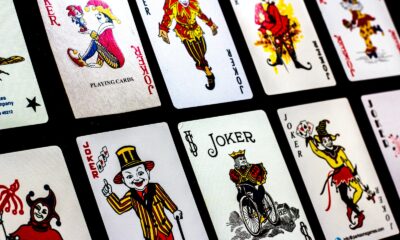Card game
Throughout the approximately 1000-year history of card games, a variety of card games have come and gone, becoming more or less popular. Some are more classic than others, and some have become more popular only in recent years and in certain circles or areas. With a typical deck of 52 cards, you can also come up with a range of your own card games and rules. However, if you don’t want to be so innovative and want to start playing right away, you’ve come to the right place.
In this text, we want to present an example of a card game that is suitable for many different contexts and moments when you want to have extra fun. We will cover the main points of the game, which players can participate, the typical game rules that apply, and alternative game rules that you can use if you wish. So if you want some inspiration for your next game night, read on!
Card game Stress
A really fun and fast-paced card game that fits any time you want to play card games is Stress. It is a card game for children as well as adults and is ideal as a card game for two players. You can also play with several players, but also on your own. Stress is about making sticks from all the piles assigned to the player in the fastest time.
Rules of the game
Before the game can begin, the two players should sit opposite each other on a flat surface. One of the players then deals the deck into 13 piles of four cards. Each player gets six piles in front of them and the remaining pile is laid out as a border between the players. The four cards should be face up so that both players can see them. Then the game begins.
- The task is to pick up one of the six own, and so far hidden, piles and exchange any cards from it for the ones lying face up in the border. Players may only replace one card at a time and there must always be four cards in the border.
- Players may then switch between their piles at any time, regardless of whether they have managed to collect a stick or not. However, they can only have four cards in their hand at a time. For example, if a player has a seven in one pile and collects sevens in another, the player must first exchange the seven in the first pile for a card in the border and then pick up the next pile to exchange the odd card in it for the desired seven.
- Players who notice that their opponent is collecting a certain denomination may also choose to sabotage. In the above example, the player can take the seven, which is unguarded in the border. However, this means that the player who sabotaged cannot complete the pile consisting of the other player’s desired cards.
- When one of the players manages to collect a stick in a pile, so that all four cards are of the same denomination, the pile is complete. Then it should also be laid face up so that the other player is more stressed by the success.
- When one of the players has managed to complete all six piles, the player shouts “stress!”. Then the player has won.
Alternative rules of the game
If there are several players in the game, the same rules apply, but each player gets fewer piles. However, there cannot be more than six, as each player should have at least two piles each. We must also warn you that the more players who participate, the more waiting time there will be for someone to place the desired card in the border.
If you are looking for a card game for one, Stress is also a good option. However, if you play alone, you will have to deal with all twelve piles on your own, with time as your opponent. We recommend using a timer so you can play against yourself and your own speed.
To make Stress even more difficult and stressful, players can also have a rule that each pile must be released after a certain time or action. Perhaps each pile is only allowed to be dealt for five seconds, or the player is only allowed to replace one card at a time.
Another alternative rule could be that each player must manage their piles in a certain order. Then they might be placed in a line where the player has to start from the left and end in the right. This makes the game more advanced and requires much more planning and strategy. But it’s perfect if the players are already warmed up and want to take on a challenge.
Stress is therefore a perfect card game for those who want to have rules to follow but still allow for creative freedom. You and your fellow players, if you have any, can come up with many different rules or regulations that make the game more customized to your preferences and wishes.

















